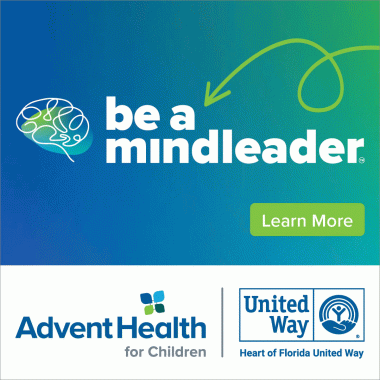Mental health disorders in children are common; in fact, many adults who suffer with mental health conditions had an onset of symptoms during childhood. But the signs went undetected by those around them, resulting in a longer period of going without support and treatment.
That said, many of our little ones are suffering in silence. For children especially, dealing with these disorders alone is frightening without the right tools to cope, and the feeling that there is “something wrong with them” may be too much to bear.
That’s why we’re here with Pediatric Mental Health Medical Director and Pediatric Psychiatrist, Lalit Chaube, MD, to help you learn information about common mental health disorders, along with signs and symptoms of mental health challenges in kids that you can be on the lookout for, along with next steps you can take if your child is struggling.
With awareness and unconditional support, we can help alleviate the suffering caused by mental health issues in children before they escalate.
Common Mental Health Conditions in Children
Anxiety and depression are very common among all age groups and affect both genders. They often start in childhood and can develop into other mental illnesses later. The two conditions are not the same, but they can have overlapping symptoms.
According to Dr. Chaube, “Kids can experience both anxiety and depression on a regular basis, but we might not know. For some, their daily living is disrupted.”
Other mental health conditions seen in children are ADHD, autism spectrum disorder, anger management issues and drug-induced mood disorder (more commonly seen in teenagers).
Here are the main signs to look for.
Watch for sudden and major changes in mood or behavior:
Behavioral Symptoms
- Angry outbursts
- Approval-seeking from parents, teachers and friends
- Avoiding social situations
- Becoming emotional when separating from family
- Not wanting to go to school or do homework
- Withdrawing from family and friends
Emotional Symptoms
- Anger
- Crying frequently
- Excessive worrying
- Fears or phobias
- Obsessive thoughts
- Self-doubt
- Sensitivity
Physical Symptoms
- Chills
- Headaches
- Insomnia
- Loss of appetite
- Restlessness
- Stomach ache
- Sweating
What Are The Next Steps?
If you’re concerned about your child’s mental health, reach out to your child’s pediatrician. Describe the behaviors that concern you. You can bring a list to the appointment. Also, talk to your child’s teacher, close friends, relatives or other caregivers to see if they’ve noticed changes in your child’s behavior and to rally support.
You can also call Call 407-821-3547 to schedule an appointment directly at our AdventHealth Medical Group Pediatric Psychiatry office. However, the office must have both parents’ information and consent.
Don’t hesitate to go to your nearest emergency room if you feel there is an imminent safety issue. You can call the mobile crisis team by dialing 211, or Call 407-839-HELP (4357).
How Are Mental Health Conditions Diagnosed in Children?
Dr. Chaube explains, “What we do is called a diagnostic clinical workup. In some cases, we might need to quantify the symptoms and use certain scales, but we don’t use a scale in every case. Let’s say there’s a question of a mood disorder; the provider might do a mood disorder scale and that can tell them if it is minimal, moderate, etc. You must have two different setups to see the symptoms.”
A typical evaluation might include:
- Academic history
- Complete medical exam
- Conversations with, and observations of, the child
- Family history of physical and mental health challenges
- History of physical or emotional trauma
- Interview with the child’s parents
- Medical history
- Review of symptoms and general concerns with the parents
- Standardized assessments and questionnaires for the child and parents
- Timeline of the child’s developmental progress
Dr. Chaube offers some wise words of advice: “If you’re a parent or guardian noticing unusual behavior in your child, it’s OK to overreact. Getting a child evaluated that isn’t in immediate danger is OK. However, if there is a safety issue, I encourage parents to act quickly so nothing happens, rather than live with the regret of what they could have or should have done and didn’t.”
What Causes Mental Health Conditions in Kids?
Growing up naturally involves so much that kids can get anxious or depressed about, given the many changes they rapidly undergo with hormones, growing pains, social challenges and more. Couple those natural changes with an already fast-paced world — that’s been turned upside down within the past few years — and life can quickly become so overwhelming that their developing minds become overburdened.
Kids have historically experienced anxiety about peer pressure, fitting in, getting good grades and, for high-school-aged kids, where they’ll go to college and much more. Those pressures have been increasing exponentially in our society, combined with other worries. As parents, it’s up to us to notice the signs that they’re struggling, and to offer unconditional support and a safe place for them to express their feelings.
Along with you, you can trust us to be another safe place for your child to heal from any mental health condition that may be decreasing their quality of life and childlike joy.
Learn more about our pediatric mental health program and how we can help your child live life to the fullest.




















